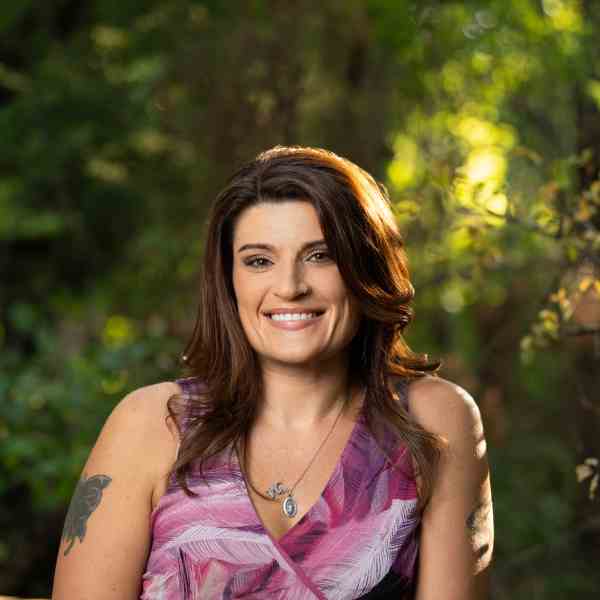For Christian couples planning to get married, premarital counseling is a rite of passage. In many ways, however, it is simply theoretical, because the feeling of being in love and excited for what lies ahead usually makes dating couples feel that they will be impervious to any marital strife.
Things to Remember Before Getting Married
However, it still serves great value, as the reality of two sinners coming together in this God-given covenant is not always as easy as it might seem at first glance, and having some helpful principles to fall back on can help smooth the way.
A trained biblical counselor might share these five things to remember before getting married:
Build on the positive
Getting married means getting to be with the person you most admire every day of your life – why would it be necessary then to build on the positive; surely this will come naturally. Unfortunately, in most marriages, there comes a time when the “honeymoon period” is over, and spouses start to notice irritating habits about each other that they never saw before.
 Too often, there is a tendency to criticize and focus on these negative aspects, which can set off a downward spiral in any marriage. That is why it is important to decide from the outset that you will make a daily habit of focusing on the other person’s positive attributes. You could even write a list of the many things you appreciate and admire about the person you’re getting married to that you can come back to, remind yourself of, and even share with them.
Too often, there is a tendency to criticize and focus on these negative aspects, which can set off a downward spiral in any marriage. That is why it is important to decide from the outset that you will make a daily habit of focusing on the other person’s positive attributes. You could even write a list of the many things you appreciate and admire about the person you’re getting married to that you can come back to, remind yourself of, and even share with them.
This will focus you on the good and minimize negativity. No marriage can thrive without encouragement and positive affirmation, so, even when the temptation arises to point out something that is annoying you, remember that the long-term health of your marriage is more important than short-term gratification.
Work on personal change rather than your spouse
Many spouses (often in the case of wives, although not always) think that if they manage to get the other person to change a particular habit or character trait, this obstacle to marital bliss will be overcome, and the problem will be resolved.
Getting married is a sure way to bring out the hypocrite in each of us, as Matthew 7:3,5 says: ‘Why do you look at the speck of sawdust in someone else’s eye, and pay no attention to the plank in your own eye?…first take the plank out of your own eye and then you’ll see clearly to remove the speck from the other person’s eye.’
While it is highly likely that your spouse will have shortcomings, setting out to try to make them change is generally a fruitless exercise, and will soon develop into a pattern of criticism and nagging, which erodes feelings of love in the marriage. Getting married is a process of getting to know another person more deeply than anyone else you’ve known.
While you may have similarities that have brought you together, it is also the differences that make for a strong partnership. While you might express your frustration with unhelpful habits such as lack of punctuality or untidiness, it is only when the person truly decides to make the change themselves that progress can occur. It is generally wiser to focus more on improving your own needs for personal development than trying to get your spouse to change.
Stick to healthy conflict resolution principles
Getting married is one thing, staying married (happily) is another, and it will come down to how you manage conflict between one another. Disagreeing and expressing conflicting opinions is not a problem in and of itself; it is healthy for different views to be brought to the table.
 It is difficult, however, to maintain self-control in the heat of the moment, and this is where personal attacks come in, which are extremely harmful to a marriage. Try to remember that ultimately you are on the same side and that winning an argument might feel good for a moment, but if it leads to resentment and contempt in the marriage, then it is a complete loss.
It is difficult, however, to maintain self-control in the heat of the moment, and this is where personal attacks come in, which are extremely harmful to a marriage. Try to remember that ultimately you are on the same side and that winning an argument might feel good for a moment, but if it leads to resentment and contempt in the marriage, then it is a complete loss.
There are a number of tried-and-tested healthy conflict principles that couples getting married should acquaint themselves with, and even print out so that they can be pinned up as a visual reminder.
These include things like not engaging in a conversation that could lead to conflict after a certain time in the evening (often called the “10 o’clock rule”) as arguing late at night when both parties are tired generally doesn’t end well, and avoiding labeling – “you always,” by using “I” statements to describe your feelings on a matter.
It’s also important to truly listen to one another, choosing to hear the person out fully before responding. These actions will be most beneficial in reaching an outcome that both spouses are happy with, and which does not erode marital trust and goodwill.
Focus on meeting your spouse’s needs
Getting married means many things to a couple in love, but seldom does the idea of it being a mirror to our own selfishness occur to us. Many people can attest to thinking of themselves as kind, generous, and loving people before they got married.
Being in a close relationship shines the spotlight on our less-favorable traits in addition to all the good ones, and this can be quite sobering. The reality of our sinful nature is that we generally care more about having our own needs met than we do about meeting those of others.
In marriage, both partners will likely have different needs that keep their “love tank” full – God has wired us each uniquely and with our own love language. Some people need physical touch and words of affirmation to help them feel loved, while for others, acts of service, gifts, or quality time are more important (according to Gary Chapman’s book The Five Love Languages: How to Express Heartfelt Commitment to Your Mate).
It is important for couples who are getting married to understand their own needs, communicate them clearly to one another, and then focus on meeting their spouse’s needs.
God is the third cord in your marriage
Christians who are getting married have a significant advantage in that they are not alone but have God present in their marriage. As Ecclesiastes 4:12 says: “A cord of three strands is not easily broken” – referring to the fact that God is the third strand in our marriages and is a critical part of the union itself. He is there to hold couples together, and this is best experienced when God is included in marriage – by putting Him at the center and meeting with Him daily through His Word.
 God designed marriage with a magnificent purpose – not only to provide companionship and raise children – but as a picture of His love for us, His church. In Ephesians chapter 5, the apostle Paul spends the latter part of the chapter giving instructions on marriage to men and women, describing what marriage should look like, with a quote from Genesis 2 about a man and a woman becoming one flesh in marriage.
God designed marriage with a magnificent purpose – not only to provide companionship and raise children – but as a picture of His love for us, His church. In Ephesians chapter 5, the apostle Paul spends the latter part of the chapter giving instructions on marriage to men and women, describing what marriage should look like, with a quote from Genesis 2 about a man and a woman becoming one flesh in marriage.
He then throws in a twist, saying that this isn’t primarily about marriage: “This mystery is profound, and I am saying that it refers to Christ and the church.” (Ephesians 5:32).
Essentially, with marriage, God is giving us a picture: our marriages are supposed to be living pictures of God’s love for us, His people, which is embodied in Jesus.
This is a weighty, profound reality, and that is why it is significant for couples who are getting married or who are already on their marriage journey to reflect on why our marriages matter.
Christian Premarital Counseling in Texas
Certainly, if we employ the principles above, we will have a happier, more joyful relationship; but ultimately, we will also be obeying God’s overall design. If you are seeking biblical premarital counseling or help in your early marriage, contact our office today. The faith-based counselors at Texas Christian Counseling are here to help.
Photos:
“Married Feet”, Courtesy of Marc A. Sporys, Unsplash.com, CC0 License; “Ring”, Courtesy of Fallon Michael, Unsplash.com, CC0 License; “Restored,” Courtesy of Frank McKenna, Unsplash.com, CC0 License
-
Marissa Erickson: Author
Throughout our lives, challenges arise that may be beyond our ability to overcome. Everyone needs a safe space, support, and, at times, guidance to work through those challenges. My goal and purpose is to provide that space and support to help you na...
Recent Posts
-
Kate Motaung: Curator
Kate Motaung is the Senior Writer, Editor, and Content Manager for a multi-state company. She is the author of several books including Letters to Grief, 101 Prayers for Comfort in Difficult Times, and A Place to Land: A Story of Longing and Belonging...
Recent Posts
DISCLAIMER: THIS ARTICLE DOES NOT PROVIDE MEDICAL ADVICE
Articles are intended for informational purposes only and do not constitute medical advice; the content is not intended to be a substitute for professional medical advice, diagnosis, or treatment. All opinions expressed by authors and quoted sources are their own and do not necessarily reflect the opinions of the editors, publishers or editorial boards of Stone Oak Christian Counseling. This website does not recommend or endorse any specific tests, physicians, products, procedures, opinions, or other information that may be mentioned on the Site. Reliance on any information provided by this website is solely at your own risk.






